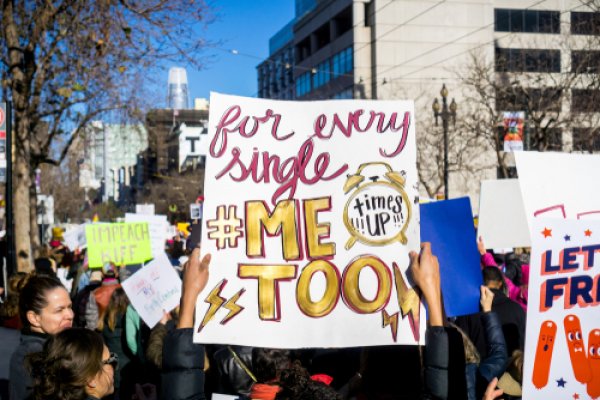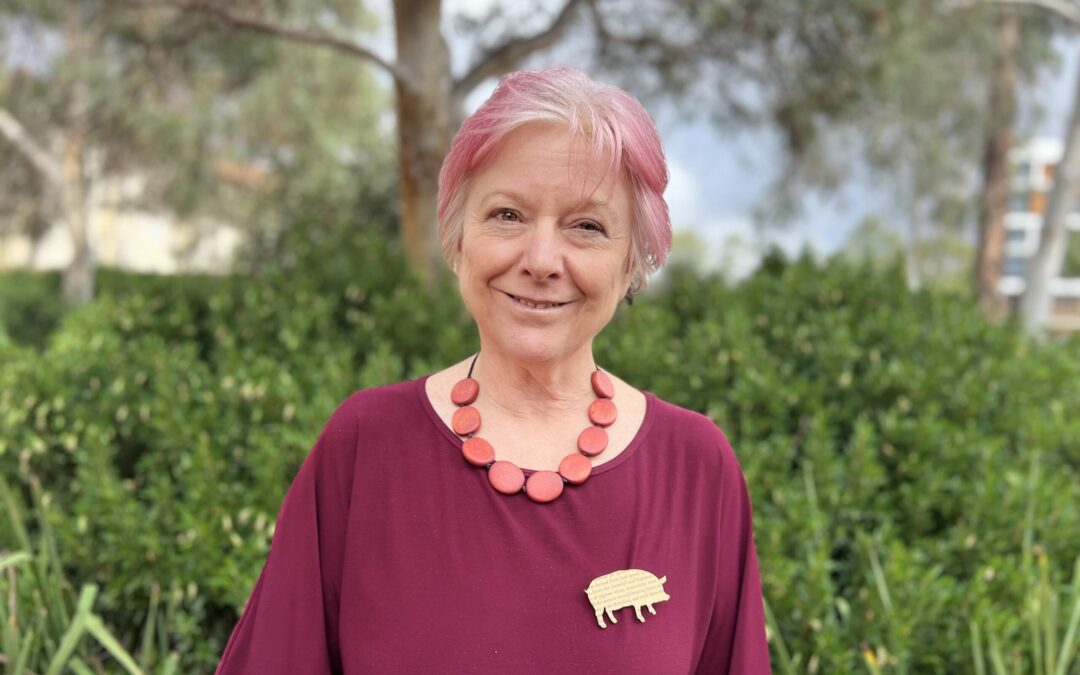As the daughter of a staunch feminist, I genuinely expected to grow up into a culture where gender equality had been achieved – or, at least, that it would be a lot closer. Instead, in 2018, women in Australia are still likely to be paid 15.3% less than their male colleagues, to be discriminated against at work (especially after pregnancy), to suffer from sexual harassment, to be the victims of violence, and to end their lives in poverty.
And, as Federal Sex Discrimination Commissioner Kate Jenkins has noted, ‘women who experience intersectional inequality often experience higher rates of [discrimination and] violence, and face additional barriers to seeking help and support’.
Given all this, it would be reasonable to ask why I spend my spare time running a feminist writers festival? Aren’t books and writing somewhat trivial concerns when compared to Australia’s shocking rates of domestic violence or coming ‘tsunami of homeless older women’? It’s a fair point, but I’d argue just the opposite. Both are actually central to shaping the narratives that we tell ourselves about our culture, our heroes, and ourselves.
If we want to tackle these seemingly entrenched barriers to equality, we must urgently start to challenge the stereotypes and narratives that underpin them
When touring Australia for a conversation in gender equality, Kate Jenkins found that structural and systemic barriers to gender equality in Australia are created and upheld by negative and discriminatory gender stereotypes. If we want to tackle these seemingly entrenched barriers to equality, we must urgently start to challenge the stereotypes and narratives that underpin them.
In May this year, the Feminist Writers Festival in Melbourne and Geelong is organised around the theme of ‘Rewriting the Story’. The festival continues the work of individuals and organisations around Australia who are fighting to change the narratives we tell ourselves about who we are, who we want to be, and what kind of behaviour is acceptable in our workplaces, homes, and on our streets.
The #MeToo movement is a great example of the power of narrative to both create and destroy barriers to equality
One of the core themes this year is gender-based violence, and the #MeToo movement that has emerged in response. This movement is a great example of the power of narrative to both create and destroy barriers to equality. The sheer number of women from all over the world who have spoken out about their experiences of sexual harassment and violence has been a powerful force in breaking down the stigma so often felt by victims.
The #MeToo movement is also an instructive example of the link between the personal and the political – reflecting an early catchphrase of the second wave feminist movement. But, like the phrase itself, the more personal or individualistic aspects of the #MeToo movement have not been without controversy. The feminist movement has long been plagued by this question of how we translate personal stories into genuine structural and systemic change.

The #MeToo movement is an instructive example of the link between the personal and the political
However, we need to remember the power of cultural narratives in shaping the structures and systems that we hope to change. When we use personal stories to change these narratives, we are already effecting real change. We challenge the idea that women’s non-fiction writing is too personal to be culturally significant, and highlight instead its role in illustrating wider points about social, political and cultural phenomena.
When we use personal stories to change these narratives, we are already effecting real change
Of course, there is also real value in going beyond the personal and taking on the system directly. That’s why we’ll also be hearing directly from feminist activists as they discuss how to create real change through words. The recent launch of Now Australia provides a promising glimpse of what this might look like in the context of #MeToo and the ongoing fight against gender-based violence and harassment in Australia.
While we have made genuine progress towards gender equality in Australia, we still have a long way to go. The fight for progress will require a multifaceted approach, including law reform, policy change, increased funding to frontline services, and grassroots activism. But cultural change is also crucial. Violence, discrimination and oppression are all normalised and entrenched through the cultural narratives that we allow to dominate.
I hope you’ll come along to this year’s Feminist Writers Festival and help us to continue to rewrite the story.
Dr Cristy Clark is an academic at the University of Canberra Law School, Australia. Her research focuses on the intersection of human rights, neoliberalism, and the environment, and she is the co-author of The Lawful Forest: A Critical History of Property, Protest and Spatial Justice (2022).





